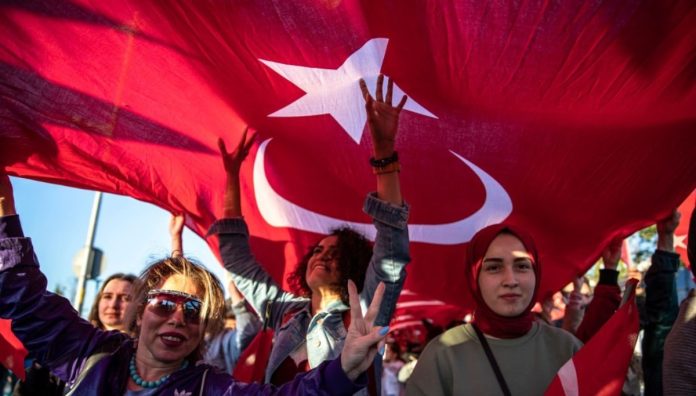In the chronicles of political history, Turkey stands as a trailblazer, having granted women the right to vote and stand for elected positions as early as 1934. Nakiye Elgun, one of the pioneering female MPs, encapsulated the essence of unity, stressing the importance of men and women collaborating in politics. Nearly a century later, the echoes of her message reverberate in the recent surge of female participation in Turkish politics.
Despite facing persistent challenges, Turkish women have carved out a prominent place in the national political landscape. However, their journey towards equality has been arduous. For decades, their representation in the Grand National Assembly remained stagnant, with numbers barely exceeding 5 percent until 2007. Yet, the tide began to turn with the latest parliamentary elections, witnessing a record 119 women elected as MPs out of 600 seats.
The significance of women’s support in shaping electoral outcomes became increasingly evident in the lead-up to the 2023 elections. Political parties intensified their efforts to court female voters, recognizing the pivotal role they play in the democratic process. This strategic focus on engaging women bore fruit, as reflected in the recent local elections, where the opposition claimed victory in key cities like Istanbul and Ankara.
The emergence of a record number of female mayors, with 11 provinces being led by women, marks a watershed moment in Turkish politics. Despite these strides, the underrepresentation of women persists, echoing a global phenomenon. However, there is a growing societal consensus on the imperative of female participation in policymaking, as highlighted by a recent KONDA survey.
Notably, the ruling Justice and Development Party (AKP) has faced challenges in retaining the support of conservative women voters, once a steadfast pillar of its electoral base. The party’s reversal of the headscarf ban in 2010 endeared it to many conservative women, yet shifting societal dynamics have led to a diversification of political allegiances among this demographic.
Turkish politics witnessed a seismic event with the country’s withdrawal from the Istanbul Convention in 2021, eliciting condemnation from both secular and conservative segments of society. The AKP’s reliance on conservative women underscores the stakes involved in reclaiming their support amidst evolving political dynamics.
Last Sunday’s elections sent a resounding message, encapsulating societal frustrations, shifting political landscapes, and the rise of women’s representation. While Turkey has made considerable progress in advancing gender parity in politics, the journey towards true equality remains ongoing. The electoral outcomes serve as a testament to both the strides made and the challenges that lie ahead in fostering inclusive political participation for all citizens.
In the tapestry of Turkish politics, women are weaving a narrative of empowerment and transformation, reshaping the contours of the nation’s democratic fabric. As Turkey marches forward, the voices of women reverberate as catalysts for change, heralding a future where gender equality is not just an aspiration but a lived reality.




